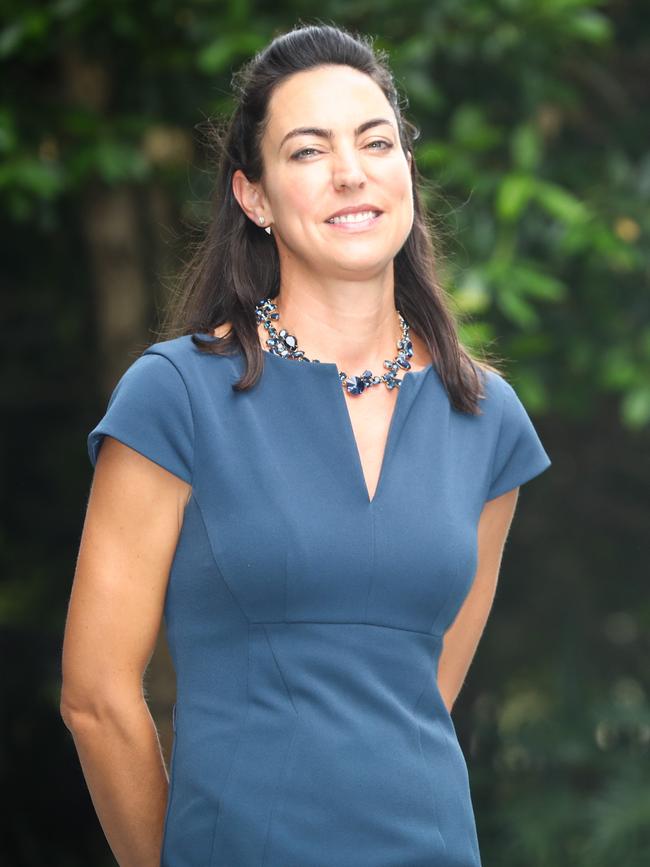‘Political will’ needed to get crypto off the ground, says CBA digital asset chief Sophie Gilder
Australia is witnessing some green shoots in its development of cryptocurrencies and blockchain, but an upcoming election could halt its progress, a conference has been warned.

Australia needs “political will” to get cryptocurrency off the ground but an upcoming election again threatens to delay progress, a Sydney conference has heard.
That was according to the woman leading Australia’s largest bank’s dive into cryptocurrency, Sophie Gilder, who spoke alongside her bank’s rivals and counterparts including Nigel Dobson, ANZ banking services lead for Australia and New Zealand.
“We see the future of money in a tokenised future economy where there will be a variety of different forms of tokenised money,” said Ms Gilder, CBA’s managing director of blockchain and digital assets.
That would include a CBDC, or a central bank digital currency, as well as stablecoins, the term used for a cryptocurrency tied to an asset such as money.
Stablecoins appeared to be the most promising form of cryptocurrency spoken about throughout the conference, and it was a space CBA had been working in for some time.
“We have been looking into the space since 2016 making gradual changes to potential structures that we might want to explore, but we’re still working through some regulatory uncertainty there,” Ms Gilder said.


But the current regulatory landscape was not getting cryptocurrency off the ground fast enough, she said.
“I am very conscious that regulators can only look at the laws and the legislation that exists … they can’t actually invent or overreach,” Ms Gilder said. “So actually, I think what we need in Australia is we need political will to implement legislation.”
Australia’s digital asset legislation consultation was a positive sign but Ms Gilder believed the upcoming election would hinder its progress.
“Unfortunately, it looks like the election cycle will get in the way of approving that, but (we’re) heading in the right direction. I just wish it had happened three years ago,” she said.
ANZ’s Nigel Dobson said it was clear the big four banks’ customers had an interest in the digitisation of different assets. That was the main finding after ANZ created A$DC in 2022, which was the first Australian-bank issued AUD stablecoin payment via a blockchain transaction.
“What we found was customers were much more interested in talking about the tokenisation of assets and what that token is able to do primarily,” he said.
“Moving value and data on a token on a chain is actually quite revolutionary, and that is actually the manifestation of many of the efficiencies that I’ve heard listening to panellists today.”

Mr Dobson said it was important that banks and regulators considered the broader impacts of cryptocurrencies and the technologies that allow them to work.
One example was payday super, announced in May last year, will require employers to pay a worker’s super guarantee alongside their salary and wages from July 1, 2026.
“We have a very strong thesis around how that might be achieved using digital tokens to move the value and the data for reconciliation much more rapidly,” Mr Dobson said.
Also speaking at the conference was Fred Schebesta, the co-founder of Finder, which was forced to axe one of its crypto projects after the financial regulator took action.
The Australian Security and Investments Commission sued the company for its Finder Wallet product in December 2022, arguing it offered financial advice without a licence.
In March this year, the Federal Court threw out the case, finding that the company did not require a financial services licence to operate the product. ASIC has since appealed the decision.






To join the conversation, please log in. Don't have an account? Register
Join the conversation, you are commenting as Logout